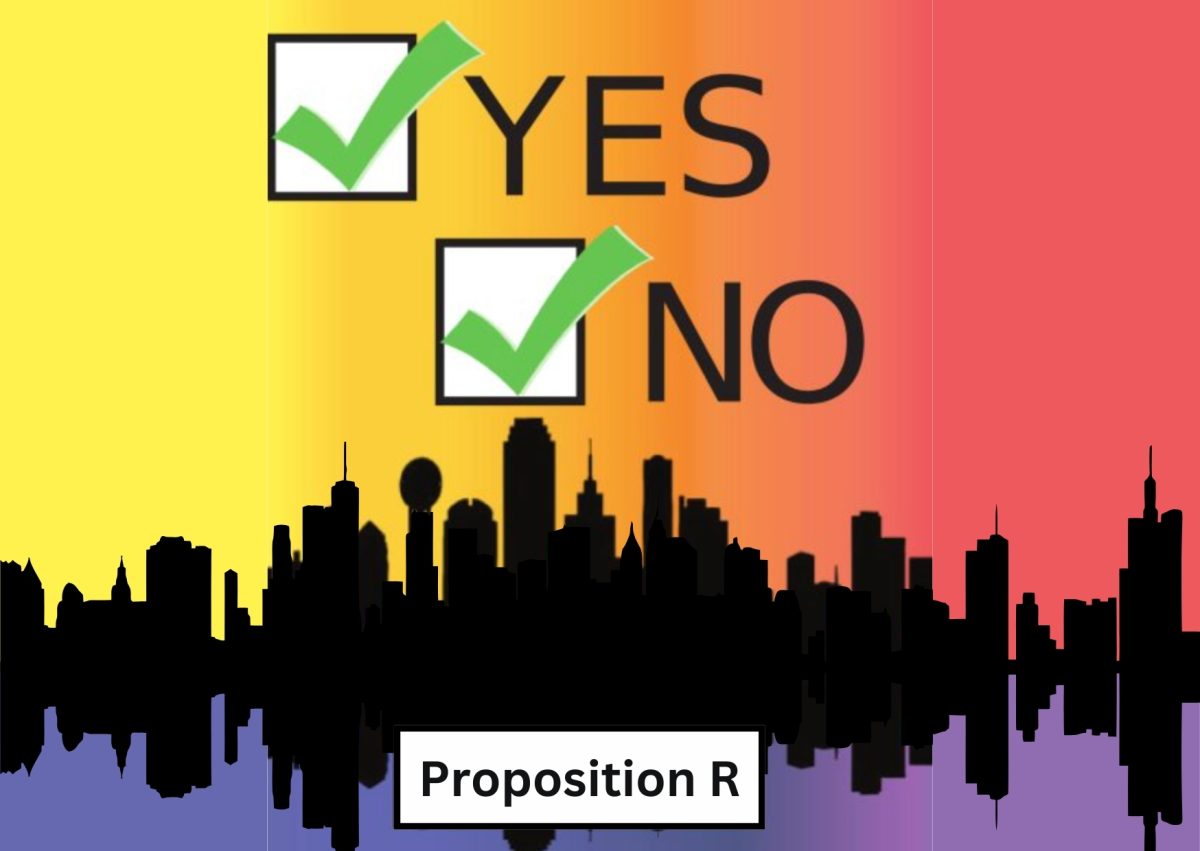Marijuana, colloquially known as weed, a drug created from the cannabis plant, is currently illegal to possess in Dallas. If caught with 2-4 ounces of marijuana, citizens will be fined up to $4,000 and spend up to one year in jail. However, a proposition on November 5th could completely change this, as numerous Dallas proponents advocate for the possession of marijuana’s decriminalization.
Marijuana, as with most other drugs, come with significant warning from doctors about the effects of heavy use. These negative effects can greatly affect consumers throughout their lives and inhibit future goals.
“People that use marijuana, typically it’s people who use it pretty heavily, like on a daily basis for like a year or longer, they can develop this syndrome where they get this terrible abdominal pain and episodes of persistent vomiting,” Dr. Kensey Saltarelli, a specialist in Internal Medicine and Pediatrics said.
Though marijuana use can potentially bring health risks, Saltarelli does not consider it to be much worse than other legal addictive substances.
“I don’t think it’s necessarily more harmful to public health than some other substances that are legal. The best example would be alcohol. I don’t personally think that marijuana is any more of a public health threat than alcohol is,” Saltarelli said.
Additionally, Saltarelli cites recreational marijuana as an aid for sleep and anxiety, an argument often used to promote marijuana’s legalization.
“Casual social use can help people relax and enjoy time with friends, and I do think it helps people with sleep,” Saltarelli said.
Regardless if the proposition successfully decriminalizes marijuana, however, circumvention of regulations will still likely be pervasive, creating an illicit drug trade. The Proposition also, despite misconceptions by most, will not be legalizing the sale of marijuana, and will instead only decriminalize the possession of it.
“There’s still going to be that illegal marijuana trade, just like there are counterfeit cigarettes. So you may be trying to solve one problem but creating another,” HPISD Chief of Police Mark Rowden said.
For police officers, it is important to consider all aspects of arresting citizens for marijuana use, especially when considering the upcoming proposition. This includes concentration of marijuana in vapes, or simply possession of marijuana.
“There’s different aspects of the way that enforcement occurs, and really we have to take that based on the circumstances of each individual situation,” Rowden said.
Ground Game Texas, an organization geared towards decriminalizing marijuana in Texas, works throughout Texas cities by hosting rallies and campaigns. Ground Game Texas collected the required amount of signatures for Proposition R, which proposes the decriminalization of marijuana possession.
Jeannette McKenzie, a volunteer of this campaign, notes that Ground Game Texas collected significantly more signatures than the minimum amount required to pass the proposition.
“We did hit the minimum 20,000. I’m not sure what the full verifying number was, but we turned in over 50,000 signatures,” McKenzie said.
Through the evident pursuit of marijuana’s decriminalization by numerous Dallas citizens, it is important to note that marijuana use still depends on the decision of each citizen and to not feel peer pressured.
“Other people prefer to stay away from substances entirely. I think it’s very much a personal decision and is going to depend on your relationship with substances,” McKenzie said.
Despite many fighting for the legalization of marijuana, there are several issues presented in relation to this. According to a study in the National Library of Medicine named “More Reasons States Should Not Legalize Marijuana: Medical and Recreational Marijuana: Commentary and Review of the Literature” by Samuel T Wilkinson, marijuana can actually cause a type of addiction, especially in adolescents. This same study discusses that by actions like legalizing usage, there is an increase in marijuana use by children.
“I think that there is sometimes a misperception that marijuana is extremely harmless,” Saltarelli said. “I don’t think that’s true. Marijuana has been shown to have a lot of the same health hazards as alcohol, which is also an addictive substance.”
As both sides argue for their case, the legal future of marijuana remains unclear. Regardless of the outcome, indvidual choices matter far more than any piece of legislation.
“There’s no there’s getting around the fact that marijuana is a gateway drug,” Rowden said. “There’s no getting around the fact that it still has intoxicating factors and it impairs judgment, much like alcohol.”





